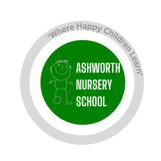Curriculum
Our curriculum is bespoke to our setting. It is designed around our children.
We believe that early years education is the most important time in any child's journey and it is imperative that we give our children the best start in life.
Our core drivers for the curriculum are: Communication and Language, Emotional Development and Life Experiences. These drivers have been selected based on the information we have collected about our pupils, their families and the wider community. (September 2024)
Long Term Plan
Our long term plan overview provides you with an insight into your child's learning experiences throughout their time at Ashworth Nursery School. The learning opportunities will continue to be enhanced over the year as the children build upon their own unique experiences and share their ideas with the friends, as is the ethos of the EYFS. Through our Continuous Provision, children are given lots of opportunities for child initiated investigation, exploration and play. Staff identify areas for enhanced provision linked to this to provide rich, stimulating, language driven, fun activities. This approach, we believe, helps children to become more independent through the Characteristics of Effective Learning.
Our curriculum is based on the statutory framework for Early Years and we use other non statutory documents to support the development and delivery of the curriculum including Development Matters.
Fundamental British Values
Fundamental British Values are at the heart of everything we do at Ashworth Nursery School. Our school values are aligned with the Fundamental values. Further information can be found in our British Values Policy.
There are four British Values that we promote:
Rule of Law
Individual Liberty
Democracy
Mutual tolerance and respect.
These four values all fit within the categories of Personal, Social and Emotional Development (PESD) and Understanding of the World (UTW).
We focus on promoting the more general concepts within the Early Years Foundation Stage (EYFS) and understand that the children’s development within these areas is key to promoting the values in the long term.
|
Rule of Law- understanding rules |
Individual Liberty- freedom for all |
|
|
|
Personal, Social and Emotional development (PSED)
|
Personal, Social and Emotional development (PSED)
Understanding of the World
|
|
Democracy- making decisions together |
Mutual tolerance and respect - treat others as you want to be treated |
|
|
|
Personal, Social and Emotional development (PSED)
|
Personal, Social and Emotional development (PSED)
Understanding of the World
|
